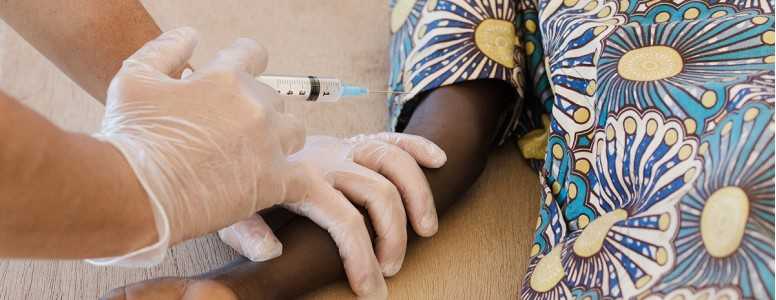A team from the University of Exeter has been awarded a £2 million grant to improve the detection and treatment of diabetes in sub-Saharan Africa.
Sub-Saharan Africa is an area where diabetes is major cause of poor health outcomes, affecting 7% of adults, and more research is needed to address key clinical questions into the care and management of the condition.
The Exeter researchers will be working to increase diagnosis rates and raise standards of diabetes care as part of a research collaboration. The funding has come from National Institute for Health Research (NIHR).
The team comprises Professor Andrew Hattersley CBE and Dr Angus Jones, from the University of Exeter Medical School, which has won a string of international awards for work combining genetic diagnosis with clinical treatment to help people with genetic subtypes of diabetes across the world.
Dr Jones said: “We cannot apply our understanding of diabetes in the West to diabetes care in sub-Saharan African, because both the diabetes and the environment in which medical care is provided are significantly different.
“This collaboration will allow us to start to answer fundamental questions about diabetes detection and treatment needed for effective patient care.”
The work will involve building on partnerships in Uganda and Cameroon already established by the Exeter researchers.
Prof Hattersley added: “Together with fantastic colleagues in African, we hope to train the next generation of clinical researchers, and build crucial research capacity in sub-Saharan Africa. We’re delighted to have this opportunity.”
Professor Moffatt Nyirenda, who is in charge of research into chronic diseases at MRC/UVRI &LSHTM Uganda Research Unit will be part of the project.
Prof Nyirenda said: “Diabetes is rapidly becoming a major health challenge in African, but with a lot of specific questions regarding its clinical course and what the right approaches to management are.
“We are therefore extremely delighted to collaborate with one of the best diabetes research teams in the world to address these fundamental questions. We are particularly happy because this partnership has been designed to create long-term scientific capacity in Africa.”
What's new on the forum? ⭐️
Get our free newsletters
Stay up to date with the latest news, research and breakthroughs.







